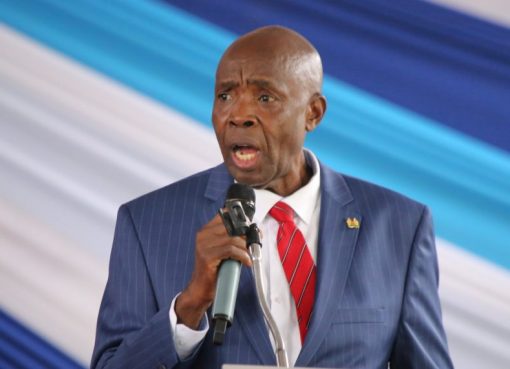Northern Corridor Transit and Transport Coordination Authority (NCTTCA) has sounded an alarm that long-distance truck drivers plying the Northern Transport Corridor suffer from a myriad of health conditions.
The NCTTCA says many commercial truck drivers along the transport corridor suffer from health issues such as high blood pressure, diabetes and eyesight problems.
The Northern Corridor is the transport corridor linking the Great Lakes countries of Burundi, DRC Congo, Rwanda, Burundi and Uganda to the sea port of Mombasa.
NCTTCA says over 60 percent of the truck drivers have suffered diverse health conditions ranging from back pain, waist pain, neck pain, obesity, short sightedness, high blood pressure and general body malaise.
The Authority’s Executive Secretary Dr. John Deng Diar noted that a medical checkup conducted at Malaba in Busia County during a road safety campaign in April 2023 revealed up to 60 percent of the drivers had one health condition or the other, which requires structured intervention.
According to Dr. Diar, truck drivers underwent tests on eyes, high blood pressure, upper respiratory tract infection and diabetes among other ailments but their severe health conditions were worrying.
He was speaking at the NCTTCA headquarters in Mombasa County ahead of a regional conference on transport corridors and health to be held between December 2 and 4 this year in Nairobi County.
“We conducted medical checkups on truck drivers in April last year and we were shocked that 60 percent of them had one health condition or the other. Our truck drivers are not healthy at all,” he said.
The medical clinic on the occupational health problems associated with driving was conducted after the road safety campaign that started from the port of Mombasa.
He says the Northern Corridor is patronized by between 2,000 and 3,000 long-haul truck drivers daily.
He said the agency was seeking a common intervention and policies that would support the drivers and communities they interact with along the corridors that serve Kenya, Uganda, South Sudan, Rwanda, Burundi and the Democratic Republic of Congo.
NCTTCA director for Private Sector Investment Promotion Denis Muganga said the agency was working with North Star Alliance to provide primary healthcare along the corridor.
He said North Star Alliance runs blue containers along the corridor and shares data with referral hospitals from its integrated health management system.
“North Star Alliance has been managing data on different ailments that is collected from the truck drivers daily,” he said.
He noted that the private sector has been active in establishing roadside wellness stations to provide rest for truck drivers and assure their wellness.
“They have been buying land and providing roadside stations. Some have been providing sanitary facilities along the corridor,” he said, noting that the sedentary nature of long distance driving puts them at risk of developing chronic diseases.
Dr. Diar said the roadside wellness centres run by North Star Alliance offer low-barrier and low-cost response to transmission of HIV and other sexually transmitted infections in the transport industry.
“The North Star Alliance broad healthcare package covers primary healthcare, including malaria, tuberculosis and emerging non-communicable diseases, HIV testing and treatment, sexual and reproductive health and rights, behaviour change communication and health education,” said Diar.
Diar said the conference aims to foster synergies among stakeholders and promote health, trade and economic development along Africa’s transport corridors.
Diar said NCTTCA called on the truck drivers to be responsible to the communities they interact with and the truck owners to take responsibility for the health of their drivers.
He said NCTTCA was targeting 1000 truck drivers for training on their health in an effort to raise awareness on the problem.
“We want the drivers to report their health concerns to the employers. We want to mainstream the issue of drivers’ health. Most importantly is that the problem has been identified,” he said.
He said after the Nairobi conference that is set to be attended by delegates from 10 countries in Africa and elsewhere, NCTTCA may lobby for a protocol to mainstream the health drivers and communities along the Northern Corridor.
The corridor has since faced the challenges of Covid 19 and Ebola among other pandemics.
By Hussein Abdullahi





